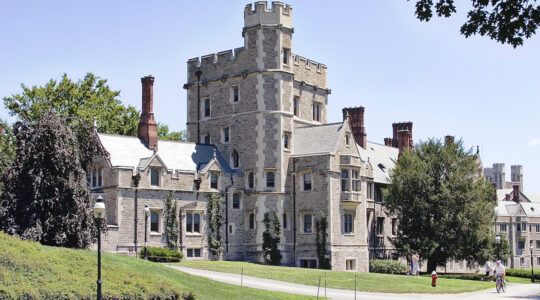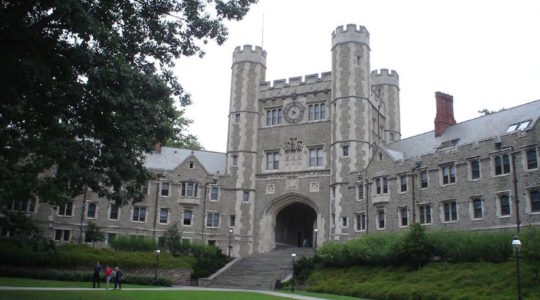NEW YORK (JTA) — A New York appeals court ordered an upstate New York town near a planned Hasidic development in Bloomingburg, New York, to allow the construction of a mikvah ritual bath at a site that had been rejected.
The town, Mamakating, had denied permission to build a mikvah at the site, a former day spa a short walk away from a Hasidic-friendly housing development called Chestnut Ridge in the village Bloomingburg. After the filing of a complaint by Orthodox petitioners, the New York State Supreme Court upheld the denial of a permit for the mikvah.
But Thursday’s appeals court ruling overruled that decision, affirming that the mikvah qualifies as a “house of worship” for the purposes of Mamakating’s zoning codes and therefore must be allowed.
Hasidic supporters of the development in Bloomingburg allege that the town’s denial of the mikvah is part of a systematic campaign to thwart the Hasidic growth in the area and discriminate against Hasidic Jews already living in Bloomingburg.
READ: How to build a Hasidic shtetl — See Bloomingburg, N.Y.
The tiny village in Sullivan County, about 80 miles north of New York City, has been the site of a pitched battle between Orthodox Jewish developer Shalom Lamm and locals — including Mamakating town supervisor Bill Herrmann — who oppose the changes Lamm is bringing to the area. For months, construction at Lamm’s housing development adjacent to the mikvah, which is being built to suit Hasidic needs, had been frozen while Lamm and opponents in Mamakating fought over certificates of occupancy for the dozens of units already completed.
But the first certificates of occupancy recently were granted, and sales of the units are now in progress, according to a spokesman for Lamm, Michael Fragin.
“Every effort of the town of Mamakating to stymie the growth of the Jewish community in Bloomingburg has been struck down by the courts,” Fragin said. “It’s time for Bill Herrmann and his allies to cease their costly campaign of discrimination and fruitless legal challenges.”
In its ruling in favor of the mikvah, the appeals court cited Jewish law as a basis for its decision.
“Under Jewish Law, a mikvah must be built in a new community even before the construction of a synagogue,” noted the decision, signed by clerk Robert Mayberger of the Appellate Division of New York State Supreme Court. “Jacob Schacter, a rabbi and professor of Jewish history, explained that an individual’s immersion in the waters of a mikvah is ‘a basic religious ritual [of Orthodox Jews] for the purpose of restoring spiritual and family purity. According to Binyamin Hammer, another rabbi, the ritual is ‘vital to those who observe Jewish laws.’ Petitioner’s submissions further showed that immersion in a mikvah is generally accompanied by the recitation of blessings or prayers.”
JTA has documented Jewish history in real-time for over a century. Keep our journalism strong by joining us in supporting independent, award-winning reporting.





